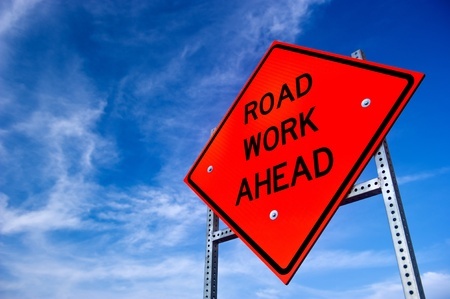National Work Zone Awareness Week 2017 - April 3-7
April 3, 2017 | Category: Automobile Accidents, Motorcycle Accidents, Personal Injury, Truck Accidents | ShareThe American Traffic Safety Services Association recently announced that National Work Zone Awareness Week 2017 is April 3-7. This work zone awareness week is an annual spring campaign to encourage safe driving through highway work zones.
What is considered a work zone?
A work zone is considered an area of a road or highway on which there is construction, utility-work activities or ma intenance. These zones typically are marked by signs, barrels, cones, channeling devices, barriers, pavement markings and/or work vehicles. The actual work zone extends from the very first warning sign to the “End of Road Work” sign, or it could be the last traffic control device. As many drivers have seen, work zones may be short-lived or be for a long duration.
intenance. These zones typically are marked by signs, barrels, cones, channeling devices, barriers, pavement markings and/or work vehicles. The actual work zone extends from the very first warning sign to the “End of Road Work” sign, or it could be the last traffic control device. As many drivers have seen, work zones may be short-lived or be for a long duration.
What is the federal Work Zone Safety Standard?
On February 24, 2010 the Work Zone Safety for Highway Construction Standard became effective. This standard applies to workers engaged in work zones on any part of the road or highway. Some of the practices covered by the standard include flagger safety, run-over and back-over prevention, equipment operator safety, illumination, personal protective equipment, and more, according to the U.S. DOT (Department of Transportation).
Who is most likely to be injured in a work zone accident?
The DOT reports that motorists are four times more likely to be injured or killed than highway workers, most often due to speeding.
What should drivers do when approaching a work zone?
The California Department of Transportation says that construction and maintenance activities close to the road involving workers and equipment can be very distracting. It recommends that drivers:
- Stay alert and be aware of the surroundings. Dedicate their full attention to the roadway.
- Pay close attention. Signs and work zone flaggers save lives.
- Merge early.
- Avoid distractions. Avoid changing radio stations and using mobile phones while driving in the work zone.
- Do not speed. Speed is the number one contributing factor in work zone crashes.
- Expect the unexpected. Keep an eye out for workers and their equipment.
- Allow ample space between vehicles.
- Be patient. Remember the work zone crew members are working to improve the driving experience and safety.
Florida, along with 32 other states, doubles fines for speeding in construction zones. Florida’s Department of Transportation (FDOT) has also implemented a state-specific program called the Work Zone Mobility and Safety Program. The goal of the program, like the federal standard, is to reduce speeding in work zones. During this National Work Zone Awareness Week annual campaign the FDOT wants drivers to remember the key message to use extra caution in work zones. "Don't Be THAT Driver."
“If you or a loved one has been injured in a work zone accident, contact the experienced attorneys at Spivey Law Firm, Personal Injury Attorneys, P.A. to determine your rights,” said Randall Spivey, Fort Myers Car Accident Attorney.
Fort Myers Car Accident Attorney, Randall L. Spivey is a Board Certified Trial Attorney – the highest recognition for competence bestowed by the Florida Bar and a distinction earned by just one (1%) percent of Florida attorneys. He has handled over 2,000 personal injury and wrongful death cases throughout Florida. For a free and confidential consultation to discuss your legal rights, contact the Spivey Law Firm, Personal Injury Attorneys, P.A., in Lee County at 239.337.7483 or toll free at 1.888.477.4839, or by email to Randall@SpiveyLaw.com. Visit SpiveyLaw.com for more information. You can contact Spivey Law Firm, Personal Injury Attorneys, P.A.in Charlotte County at 941.764.7748 and in Collier County 239.793.7748.

